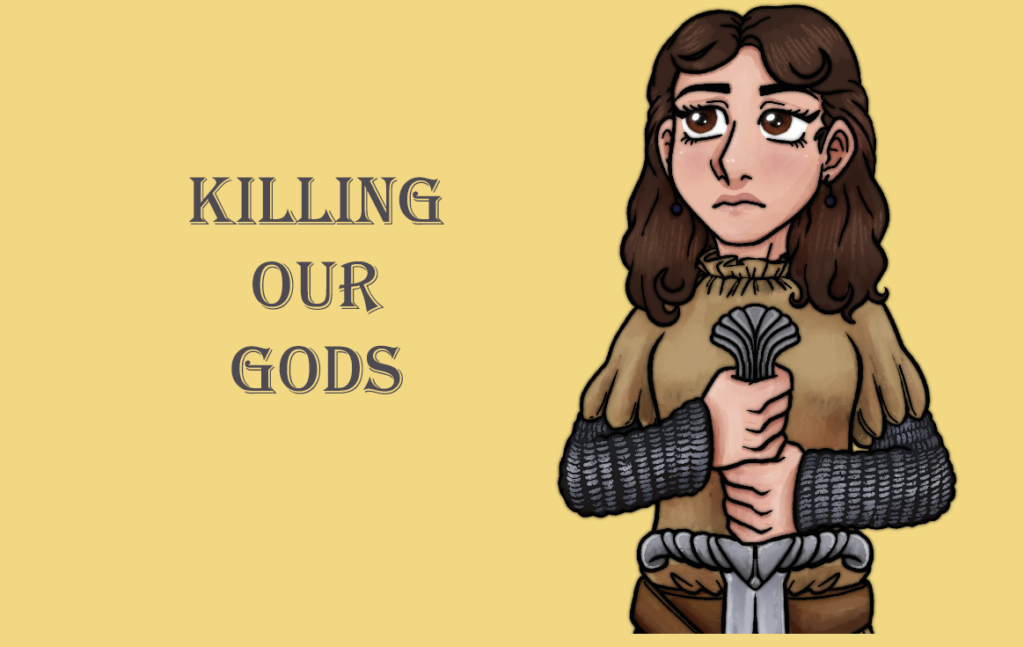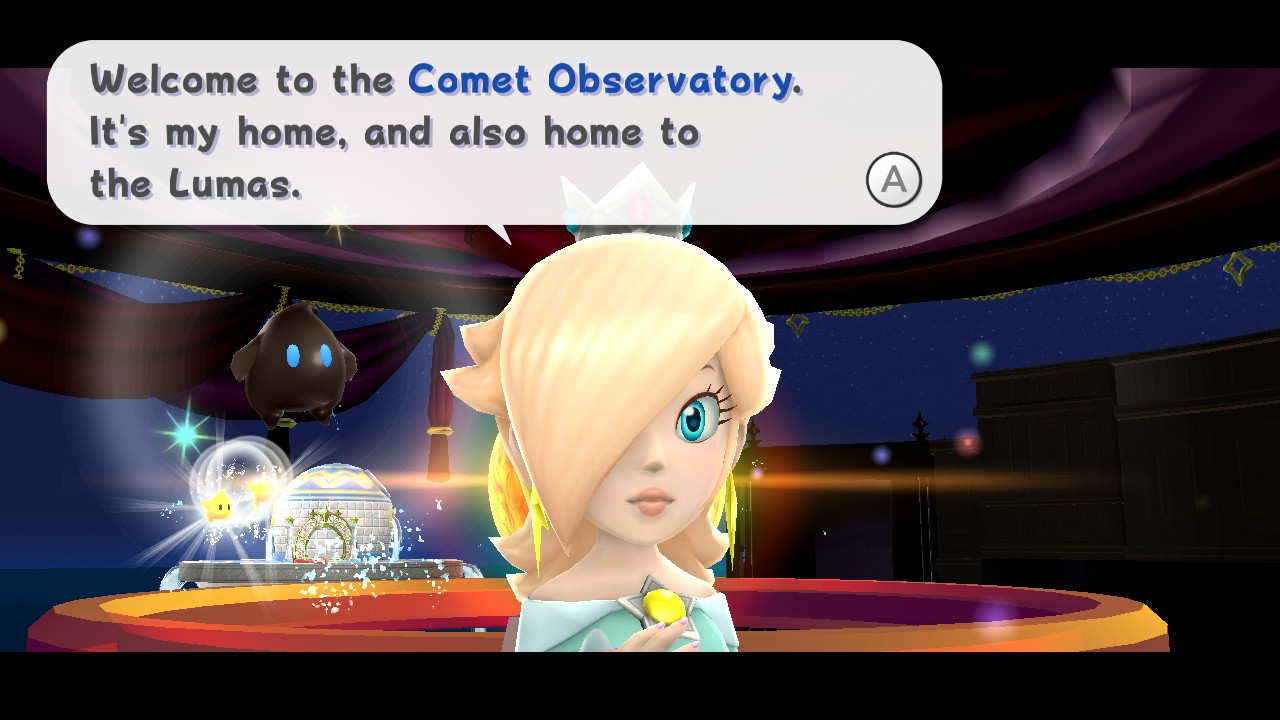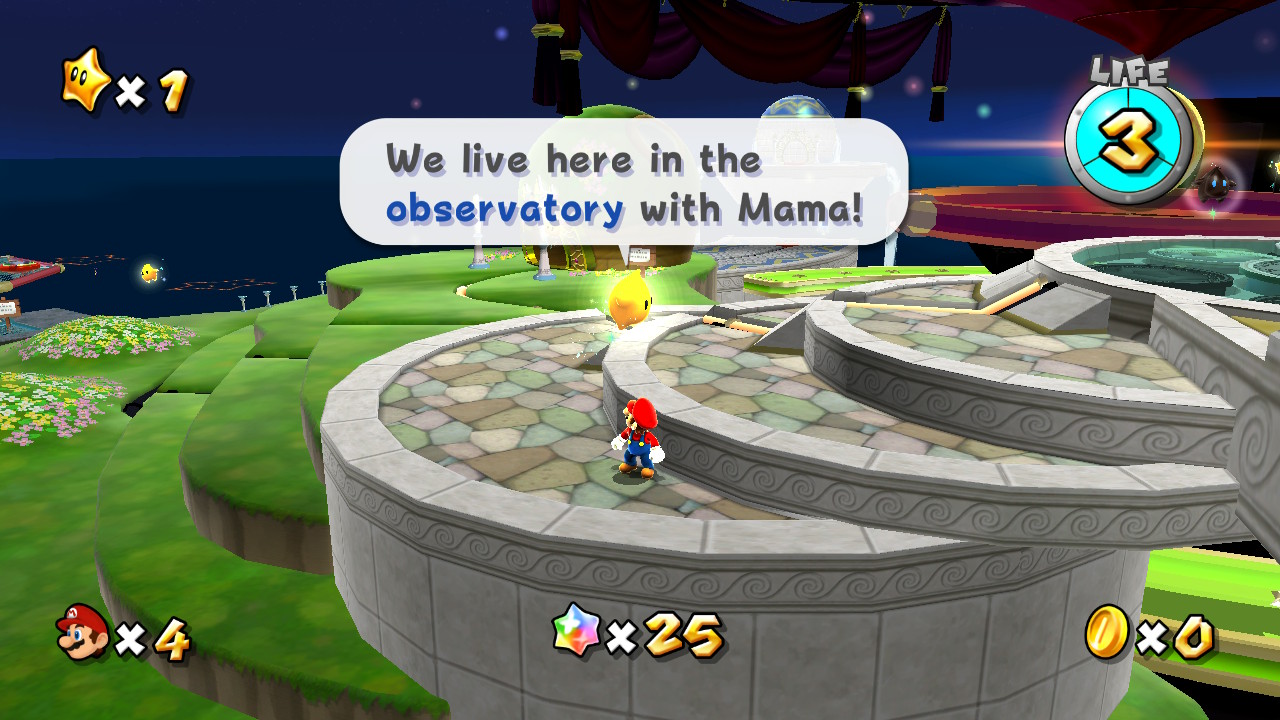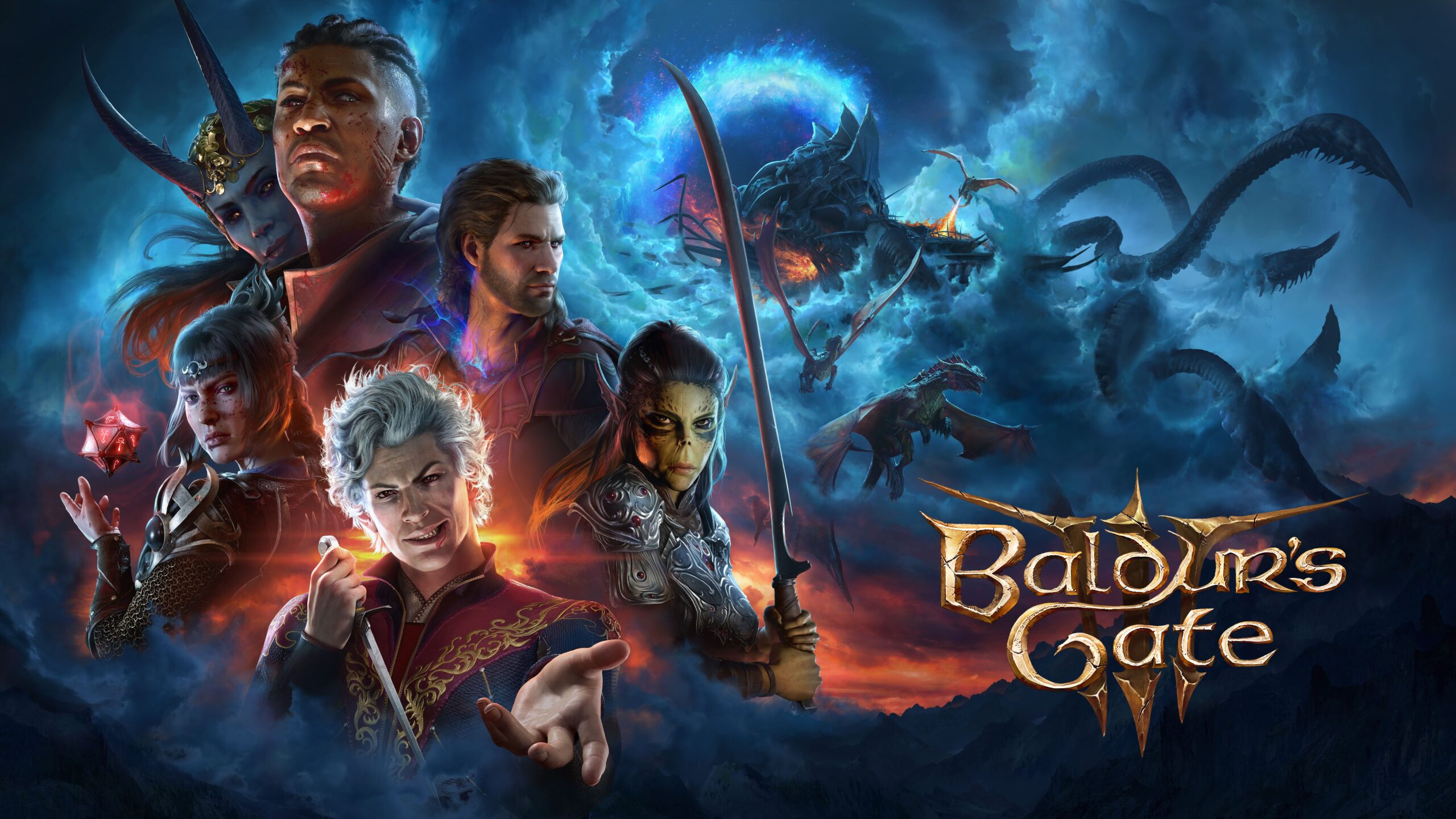
Killing Our Gods: The Reflection of the Divine Feminine in Super Mario Galaxy
Killing Our Gods is a monthly column from Grace Benfell about Christianity, religion, and role-playing through a queer, Marxist, and lapsed Mormon lens.
From the Virgin Mary to the final words of Faust Part II, “Woman eternal” has been the vessel of masculine salvation. She is the one who brings God into the world, but not God herself. Mary, in Catholic traditions, petitions God on behalf of the believers. The more abstract divine feminine leads Faust to the heavens. It is easy, and not incorrect, to read this as an extension of normative Christianity’s patriarchy. However, the lived faith of the divine feminine is always more complex.
In the religion I grew up in, Mormonism, God is a patriarch. A father, like yours or mine, far more literal than metaphorical. Though he had one beloved son, all people are his children. For Mormons, that means this Heavenly Father has a body. If we are created in his image, he has bones and flesh like we do. There is awe in that, but comfort too. God is a presence, one you can talk to, who will send the Holy Ghost to tell you what to do. Father, Son, and Holy Ghost are a triptych of masculinities, still unknown, often spoken of. With the existence of a father, a mother must be present too. Heavenly Mother is only hinted at in any official capacity—a couple of traditional songs mention her, and the phrase “heavenly parents” has recently become more popular in referring to the divine. She is a thread in mormon culture and counterculture. As the anger of women who are told they have “divine potential” but are only allowed scraps of religious authority escalates, Heavenly Mother has become an increasingly important figure. She is an absent divine, a mirror of the women who are neglected and forsaken by their church.

In this context, depictions and open discussion of Heavenly Mother has become a theological battleground. Open acknowledgement of her is discouraged and so women on the margins pray to her, write about her, make her into a presence, in contrast to the male leadership of the church. Playing Mario Galaxy this year, it was impossible for me not to see parallels in its own divine mother: Rosalina. She is, functionally, a god, a creative being who oversees the worlds. She too has many children: the Lumas, creatures who transform into stars and planets and galaxies. Pointedly though, she is alone. She escaped from her human home long, long ago and built a family with the Lumas. In a real way, Rosalina and the Lumas grew up together.
This feels pointed to me, because it echoes an unusual tenet of mormon theology, that God was once human. The divine is not beyond all matter, but a part of it. This gives the divine a human element, reflected in Rosalina. She is like Mario in some sense; she is also a regular human being who was thrown into cosmic circumstances. Rather than just being a God, she grew into divinity. For her, that simply means loving and caring for the stars.
It may seem as though I am taking Mario Galaxy far too seriously and I am! But I want to emphasize that its whimsy is part of its power. The game presents a feminine divine, small star gods who create by stuffing themselves with candy, and a universe that is kind, gentle. It is a setting where life will continue beyond confines we understand. We are not only made of star stuff, the star stuff itself is alive, benevolent, and thriving. Because of this whimsy, the game frees itself from the burden of material theology. Rosalina is not worshipped, she simply is. She reads aloud her story to her children. She gives them support and love without question. Super Mario Galaxy, even at its most difficult, is comfortable and encouraging. It is hard for it not to be when a motherly and kind god wishes you well.

That ease and comfort can carry trouble with it. Even the most liberating strains of Mormon feminism get wrapped up in cis-sexism and white supremacist patriarchy. Though the LDS church grows internationally, its leadership and base is overwhelmingly white. Depictions of the divine rarely deviate from the ahistorical, white ideal of Jesus. This carries over into how Heavenly Mother is thought about and perceived. The public face of mormon feminism, and by extension the God they worship, is white. Additionally, an eternal, divine feminine often comes into harsh conflict with gender nonconformity and transness. Mother’s Milk, an achingly moving collection of poetry about Heavenly Mother, consistently emphasizes her cisfemininity. The author, understandably, finds comfort in a God experiencing menstruation or childbirth. However, as approaching those things as part of an impeccable, feminine divine, it leaves people of many genders behind. It accidentally reenforces what it tries to correct against, making Heavenly Mother into an eternal unit of a divine heterosexual family. Though the book tries to correct God’s whiteness, explicitly referring to the Divine Mother as a Black woman, it feels like white guilt. A white person claiming the Blackness of God does not mean very much. Even with the most noble intentions, it is difficult to untie femininity from the patriarchy that structures it.
Rosalina, still, feels like an echo of these theological debates. She is a lithe, ideal form, white like Mario and Peach. Ultimately, Rosalina is a function of plot, a device to allow Mario to explore new worlds, find new life, and make the stars his own. The vision she provides of the divine is in the margins, easy, breezy, and forgotten. She even mostly keeps out of the way. To be clear I don’t expect some statement on my obscure theological struggle in a video game from Japan, an entirely different religious and cultural context. It simply struck me how this strange divine reminded me of my own struggle with God, of seeing the woman I became and the women I knew struggle with a theology that only reluctantly recognized them.
Still, I think Rosalina points at something vital in her matter of factness. There is no remarking upon her status, or even any theology. She just is. That simple depiction uncovers the contradictions of patriarchy. Marginalized genders are oppressed, but they are also real, strong, and far more than just products of their oppression. Maybe we do not have to classify the gender(s) of the divine. Maybe they just are. If there can be such a thing as a liberating christian theology, it will come from breaking the molds of christianity as it is. In its whimsy, its simplicity, Mario Galaxy accidentally points at something profound. It knows, at least, that we don’t have to long for the divine that reflects ourselves, it is already here.





